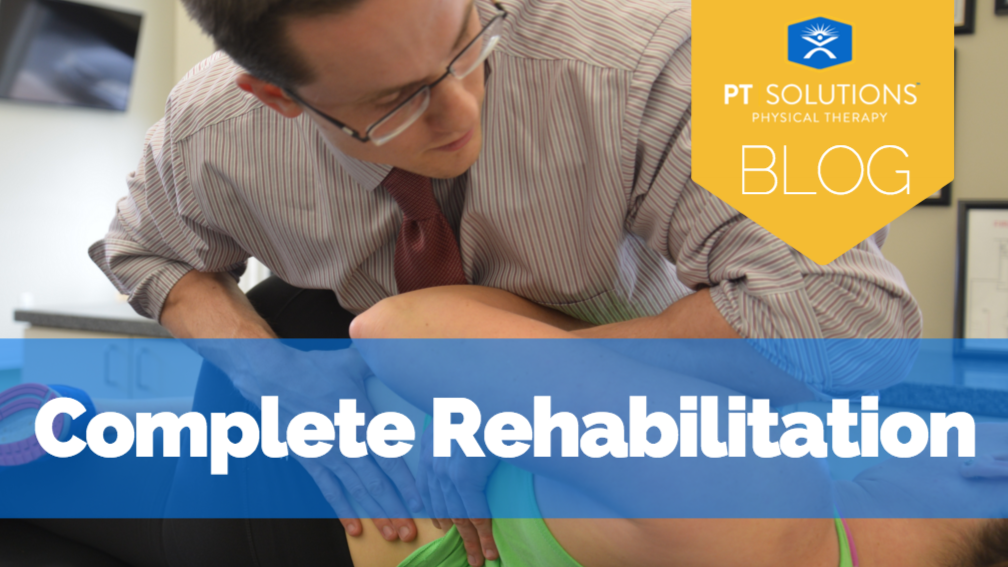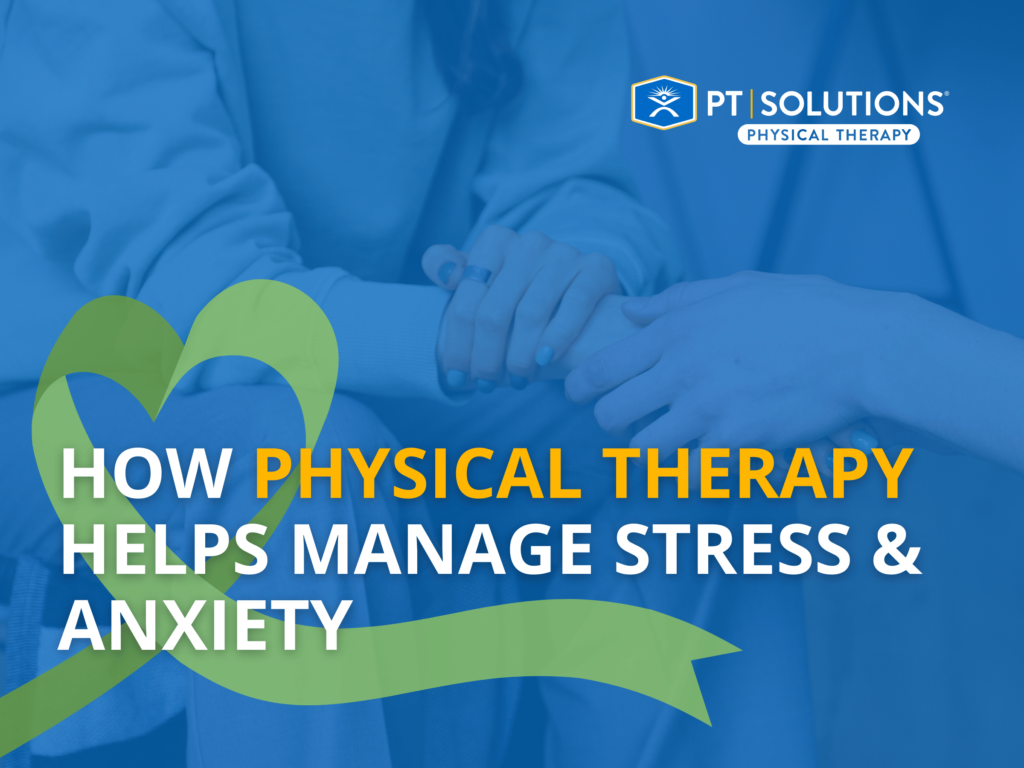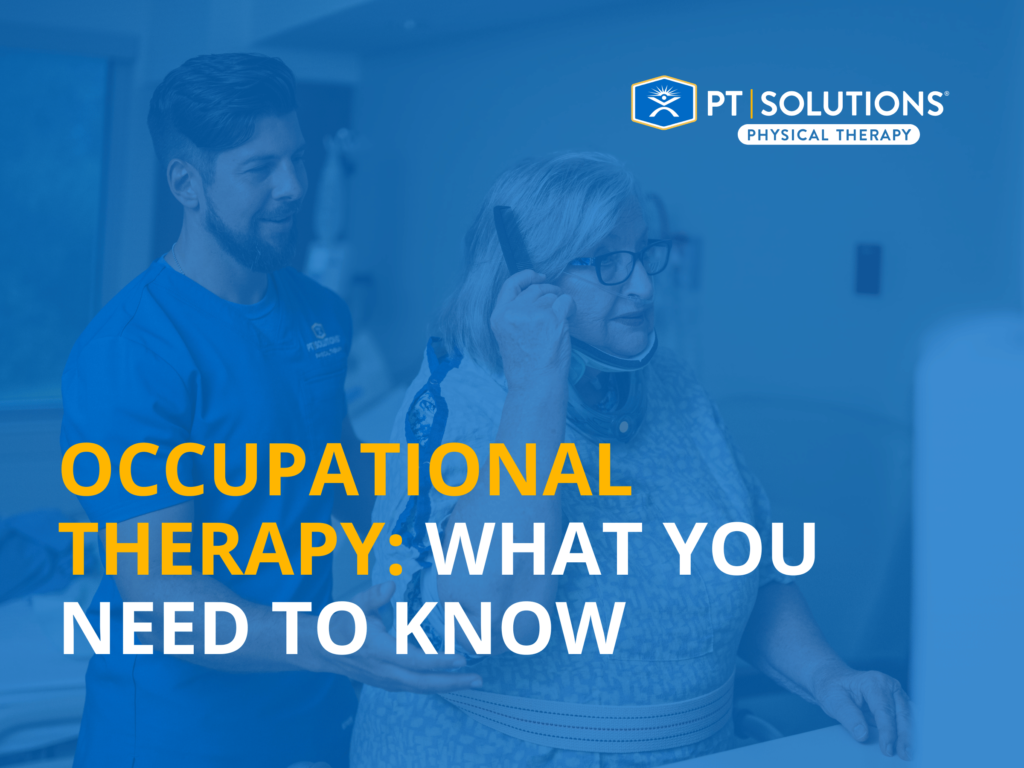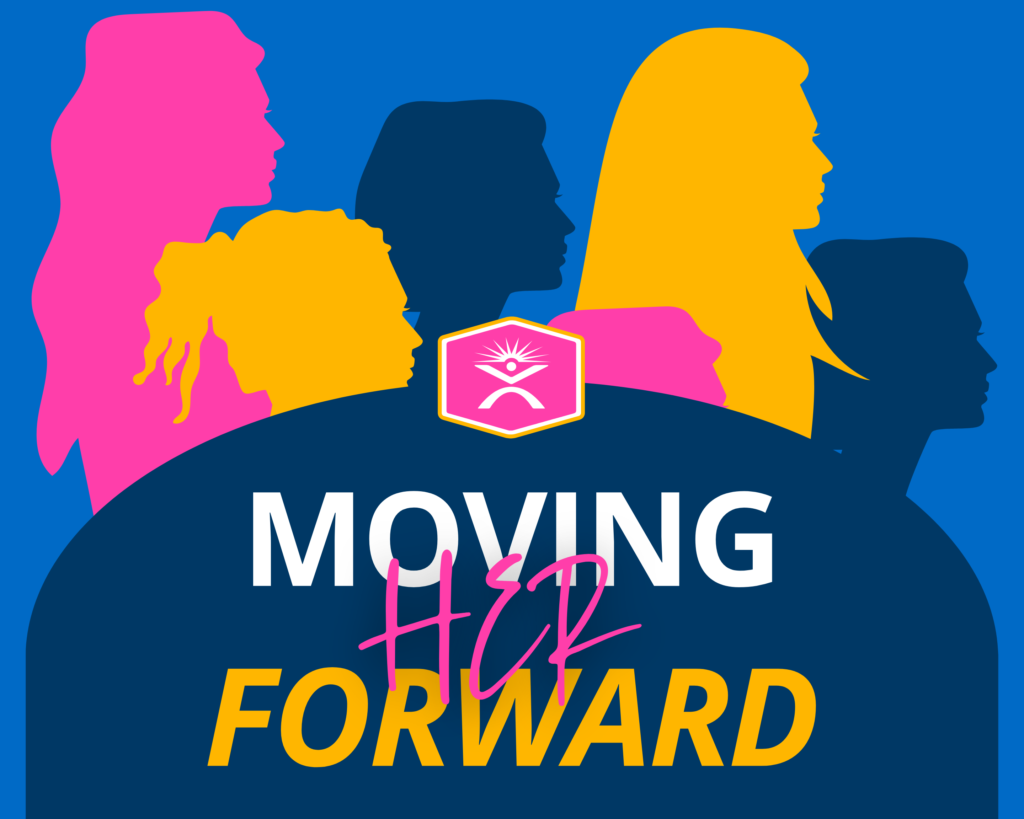PT Solutions
Complete Rehabilitation
March 23, 2016

As physical therapists, we’re often questioned about our role within the medical field. When a doctor prescribes therapy, patients tend to expect some exercise involving bands that come in an array of colors, a pad that will warm up or cool down the injured area, and a list of exercises to do at home. If that is all you get from your PT clinic, I encourage you to look elsewhere. Complete rehabilitation requires more than simple exercise and modalities. To truly rehabilitate someone and improve all aspects of their physical capabilities, one must address all the contributing components. This includes exercise, diet, sleep, and stress.
Exercise
Exercise is beneficial for, well, just about everything regarding health and wellness. We know from research that exercise improves cardiovascular health, muscle endurance, strength, balance, mental acuity, awareness, happiness, and an array of other physical and mental functions. However, not all exercise is created equal.
While going on a 20-minute walk can be very beneficial for overall wellness, it is not at the intensity necessary to stimulate a lot of change in the body. The same thing goes for strengthening exercise. Completing a few band exercises at 3 sets of 10 without much difficulty won’t fix your dysfunction. It is important to work at an intensity high enough to challenge your body.
At PT Solutions, our therapists know how to do that. They will educate you on the proper movement patterns and muscle activation early on in your treatment, but then continue to progress you to ensure your body is adapting in a positive way to help eliminate your dysfunction.
Diet
A good diet is the foundation of any successful exercise or rehabilitation program. Your diet gives your body the building blocks necessary to heal and thrive. You don’t need a fancy meal plan delivered to your door or to rely on strictly liquids for a week either. Your body simply needs adequate nutrients for the demands it faces on a daily basis. These needs will be unique to every individual and should be discussed with your therapist. They know better than anyone the stresses your body must endure not only in therapy, but to complete your daily activities. They will be able to help facilitate your workout program with an appropriate dietary guide.
Sleep
I cringe every time I hear the phrase “I’ll sleep when I’m dead.” The people that say that don’t understand how necessary sleep is. Your body releases many vital hormones predominantly when you sleep, and those hormones are responsible for repairing and improving your body. You can workout 2 hours a day with a perfect program, but if you aren’t eating well and/or sleeping enough, you won’t see results. Same thing happens with your physical therapy rehabilitation program. Without adequate sleep, you won’t heal as quickly, or at all. Talk with your therapist about not only how much sleep you should be getting a night, but also how to improve your sleep.
Stress
Stress has the power to undo the good of all the above. While some stress is unavoidable, and other stress is good (such as exercise), it is important to minimize the stressful events of your life. Chronic stress can trigger increases in hormones that breakdown your body and exacerbate your symptoms. Find an event (such as yoga or walking) or a method (such as meditation) to control and decrease your stress during the every day chaos we deal with. I promise it will do wonders for you.
Putting it all together for complete rehabilitation
Your body is a complex machine with many needs to function. If you want to thrive physically and recover fully from injury and dysfunction, it is vital you give your body all the tools it needs. Focus on getting adequate exercise, nutrition, and sleep while minimizing your stress. To discuss all these areas of health and rehabilitation with one of our highly trained physical therapists, stop by your local PT Solutions clinic. Remember, if you take care of your body, it will take care of you.
About the Author
Dr. Zach Walston, PT, DPT is National Research Director at PT Solutions Physical Therapy. Dr. Walston earned his BS in Human Nutrition, Foods, and Exercise at Virginia Polytechnic Institute and State University. He then received his Doctorate of Physical Therapy from Emory University in Georgia. While at Emory, Dr. Walston received the Johnnie Morgan Award for Excellence in Clinical Science. He is a graduate of PT Solution’s Orthopaedic Residency Program and utilizes his expertise in rehabilitation, exercise, and nutrition to help patients recover from current injuries and prevent future ones.



